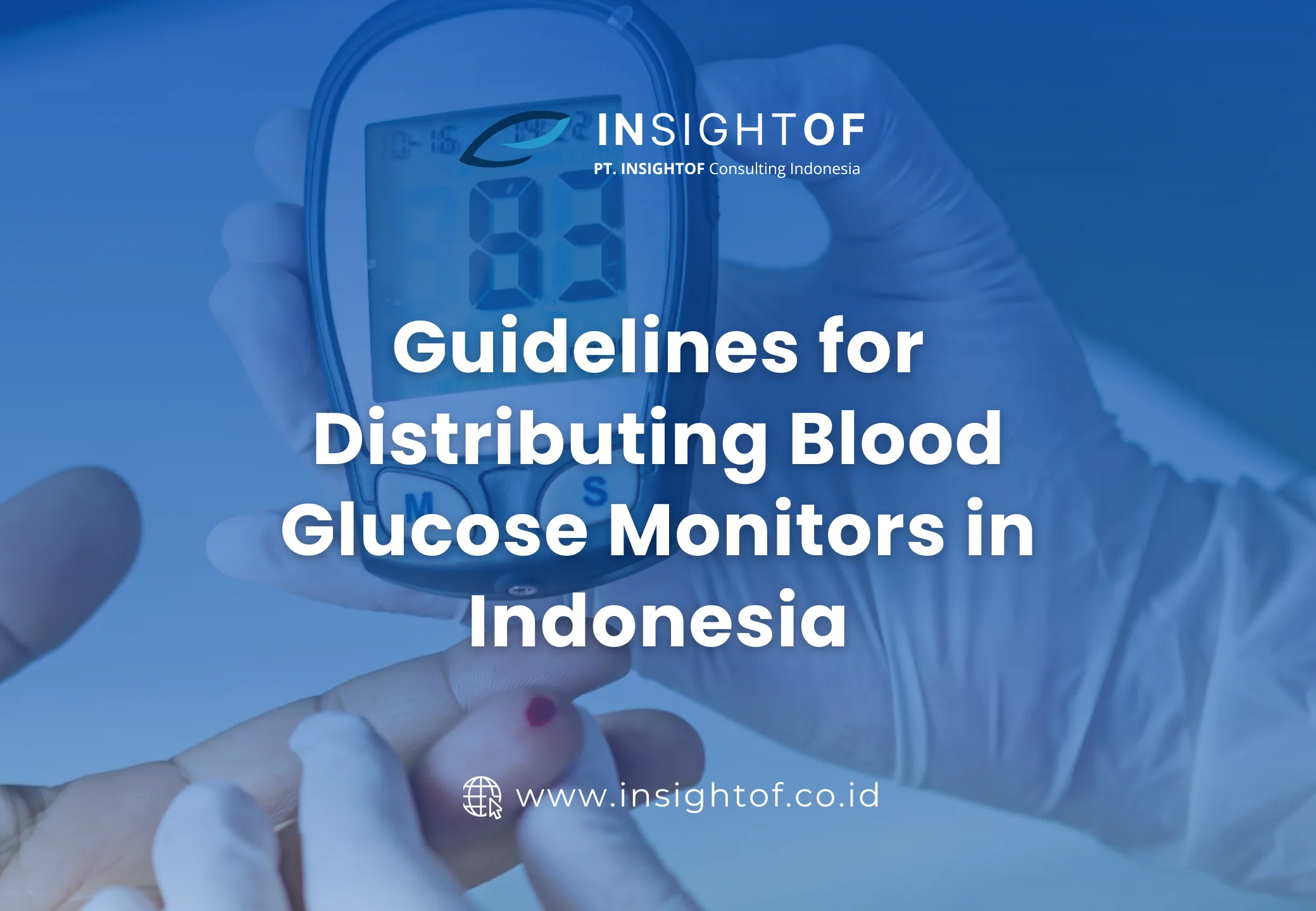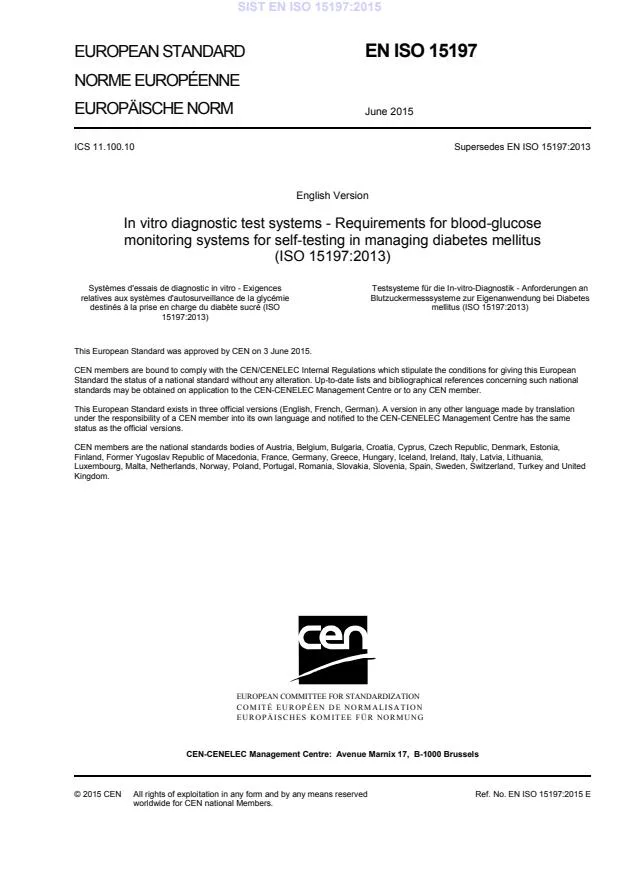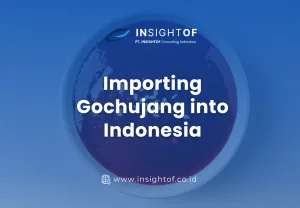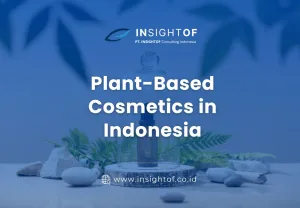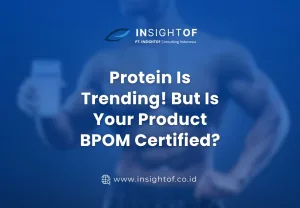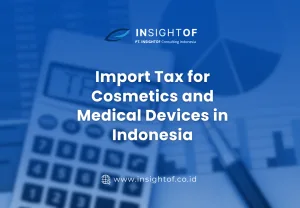The distribution of medical devices in Indonesia, including blood glucose monitoring systems, is regulated under Law No. 36 of 2009 on Health and Minister of Health Regulation No. 62 of 2017 concerning the Distribution Permit for Medical Devices, In Vitro Diagnostic Medical Devices, and Household Health Supplies. All medical devices, including blood glucose monitoring systems, must obtain a distribution permit before being marketed in Indonesia.
Blood Glucose Monitoring Systems: Essential for Diabetes Management
Blood glucose monitoring systems are vital medical devices that measure the glucose level in blood samples. These systems are essential for people with diabetes to monitor their blood sugar levels and manage their condition effectively. They are widely used in both healthcare facilities and home settings.

Administrative Requirements
- Production Certificate (for locally manufactured products)
- Specifies the category: Clinical Chemistry and Clinical Toxicology Equipment.
- Product Type: Glucose Test System.
- Medical Device Distributor License (IDAK)
- Must include authorization to distribute In Vitro Diagnostic (IVD) medical devices, especially imported products.
- Letter of Authorization (LoA)
- Appoints a sole/exclusive agent or distributor.
- Legalized by the Indonesian Embassy (KBRI) in the country of origin.
- Must include the trade name and product type.
- Valid for at least two years.
- Certificate of Free Sale (CFS)
- Confirms that the product is marketed in the country of origin.
- Issued by the relevant authority in the country of manufacture.
- Quality Management System Certification
- ISO 13485 certification covering in vitro diagnostic products.
- CE certification (if applicable) issued by a registered Notified Body.
- Executive Summary
- A brief review including device description, working mechanism, intended use, marketing history, indications, safety, and performance information.
- Declaration of Conformity (DoC)
- A manufacturer’s statement confirming compliance with applicable standards.
- Trademark Patent Statement
- Trademark certificate from the Directorate General of Intellectual Property.
- Declaration agreeing to release the trademark if legally required.
- Declaration of Authenticity of Documents/Data
- A statement confirming the authenticity and accuracy of submitted documents.
- Signed by the company’s authorized representative.

Technical Requirements
1. Finished Product Specifications (ISO 15197:2013)
- Accuracy:
- 95% of glucose results < 100 mg/dL must be within ±15 mg/dL total error.
- 95% of glucose results ≥ 100 mg/dL must be within ±15% total error.
- 99% of results must meet the Consensus Error Grid criteria (zones A and B).
- Sample Size: Minimum of 100 samples for accuracy testing.
2. Test Strip Quality
- Consistent quality assurance across all batches.
- Lot numbers must meet the device’s performance criteria before release.
3. IEC 61010 Compliance
- Electrical safety certification issued by an accredited testing laboratory or notified body.

Labeling Requirements
Blood glucose monitoring system products must include the following information:
- Distribution permit number
- Trade name/brand
- Product type
- Device image
- Device specifications
- Manufacturer’s name and address
- Importer’s name and address (if applicable)
- Batch/serial number for traceability
- Intended use and user instructions
- Package contents
- Expiration date
- “Single-use only” declaration (if applicable)
- “For In Vitro Diagnostic Use” or “IVD” label
- Symbols indicating the need to read the instructions before use
- Compatibility statement for approved test strips
Registration Process
- Submission of Application
- Complete administrative and technical requirements.
- Risk Classification & Payment
- Determine the risk classification (Class C for blood glucose monitoring systems) and pay the registration fee within seven days.
- Evaluation by Regulatory Team
- The review team assesses documentation and compliance.
- Draft Permit Review
- Applicants review the draft permit and provide corrections within 24 hours if needed.
- Document Deficiency Notification
- Applicants must complete any missing documents within ten days.
- Re-evaluation
- The review team reassesses the submission after document completion.
- Rejection or Approval
- If requirements are unmet, a rejection letter is issued.
- If all conditions are met, the distribution permit is granted.

Permit Issuance
Once the safety, quality, and efficacy evaluations are completed, the Minister of Health issues the distribution permit through the Directorate General of Pharmaceuticals and Medical Devices.
Permit Format:
- Domestic Products: KEMENKES RI AKD XXXXXXXXXX
- Imported Products: KEMENKES RI AKL XXXXXXXXXX
Ensuring compliance with these regulations is crucial for manufacturers and distributors to successfully market oximeters in Indonesia.

How can INSIGHTOF help?
INSIGHTOF offers comprehensive regulatory services to facilitate market entry in Indonesia, specializing in BPOM and Kemenkes product registration with expert guidance every step of the way.
For any inquiries, please feel free to contact us at marketing@insightof.co.id.

